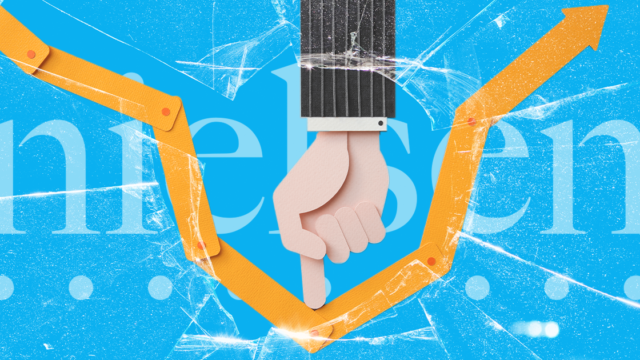Attention has never been more expensive for brands to buy, growing by nine-fold over the past 20 years. Meanwhile, ads have never been easier to avoid, with the continued rise of ad-free subscription services and roughly 70 million people in the U.S. using ad blockers last year.
Traditional TV is also having its shakiest year ever. The media world trembled in February when Super Bowl ratings dropped 8%, and then shook violently a few weeks later when Golden Globes ratings plummeted 64% and Oscars ratings dropped by 58%. Even TV’s two bastions of hope—sports and live events—seem to be flailing.
Of course, it’s worth noting that it is an unusual year. Seeing Jason Sudeikis accept Best Actor at home in a hoodie doesn’t quite have the red carpet appeal of a tuxedoed Leonardo DiCaprio side-eyeing Lady Gaga. But, still … 64%!
Brands continue to hand their media dollars over to the giants that monopolize the digital ad world, and those giants continue to preach their best practices. Make it shorter! Open on a logo! Close on a logo! Have you considered replacing that story beat with a logo?
As we all tumble further and further down into the six-second logo abyss, the industry needs an antidote.
Embrace a new era in branded entertainment
Rather than creating six seconds of content for brands, let’s create six hours of content. Rather than paying for attention through interruption, let’s tell stories that are genuinely entertaining and invite people in.
The systemic issues in the ad industry are increasingly highlighting the need for a new era of branded entertainment. Shows and movies first and foremost entertain with their storytelling, while finding a natural and authentic role for the brand.
The world’s most innovative brands are already a step ahead in this space. Nike co-produced the timely HBO documentary The Day Sports Stood Still, shining a light on how Covid-19 affected the sports world. And Dove won an Oscar for its animated short Hair Love, a heartfelt tale about a father learning how to do his daughter’s hair.
Formula for compelling branded entertainment
Through long-form storytelling, brands can again romance their audiences. They have an opportunity to create compelling narratives wrapped in stories that people care about with their brand at the heart of it all. If you’re into it, then tune in. If you’re not, then keep scrolling through Netflix to find that true crime doc about the crypto scam run by a cat.
Creating compelling entertainment on behalf of brands is no easy feat. It requires a combination of brand expertise, world class storytelling and Hollywood know-how. The first two are needed to create a compelling story that aligns with the brand’s ethos or product and solves a business challenge. And Hollywood know-how is necessary to ensure that the show or movie is packaged in a way that will sell to a network.
Cynics may say that no one wants to watch an extended 60-minute ad, but this model naturally filters that out. At the end of the day, networks and streamers will only buy into the idea if they believe it has genuine entertainment value.
They need to believe that it will appeal to their current audience or attract a new one. Otherwise, why would they co-fund it? The HBOs, Hulus and HGTVs of this world have no interest in serving their audiences an extended 60-minute commercial. They want groundbreaking original content. And this is exactly what the ad industry needs, too.









